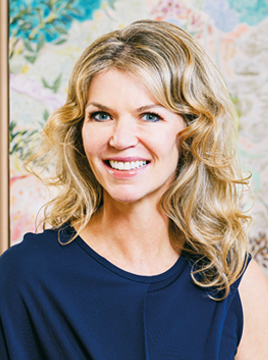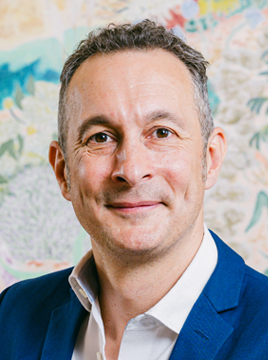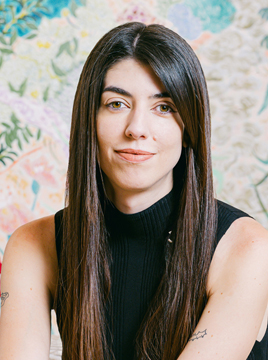What defines CDR?
Two revealing interviews with Christina and Olga, distilled into twenty smart insights.
I have an incredible hospitality origin story.
When I was a teenager, my parents purchased a boutique hotel on a beach in St Lucia. I learnt that it’s people that enliven a resort. I remember the catch of the day, often lobster, would arrive from the fisherman at 7am. Sylvanus, the hotel gardener, would climb palm trees and throw down coconuts. Personalities make a place.
My life has revolved around hotels ever since.
I met my husband at the Connaught in London. We got engaged at the Four Seasons in Budapest. Hotels can command history, character and legacy. Guests carry memories of special moments, unforgettable trips and unique occasions. These are what makes the best properties so magical and so timeless.
Establishments like Raffles in Singapore or the George V in Paris are works of art. They are a reminder of previous lifestyles. They evoke special journeys. What I love about hotels is that they can act as a theatre. They are where people perform life memories and make magical times together.
Film has LA, fashion has Paris, but hospitality has no true centre.
I chose London as CDR’s headquarters because it features the most luxurious brands, the most historic properties and the most cutting edge approaches to hospitality. With the types of clients drawn to London, for leisure and for business, the hospitality scene is constantly renewed with fresh developments, properties and people. A lot of imagination comes out of that competitiveness.
Our broader ecosystem of coaching, career management and family counsel makes our hires a success.
I’ve originated and closed over 400 career placements during the last 20 years. Simply installing a candidate is not enough. Our role is about nurturing long term relationships. A solid support system around top tier executives allows individuals to flourish. Our professional approach is about understanding what motivates somebody as well as understanding their vulnerabilities. Once you have a deep sense of that, you can positively influence a person’s life and their career choices.

I have witnessed superstar hires fail.
People forget that if that person is not being supported by their social network — family, partner, friends — they will not be motivated in their new setting. We scout a candidate’s future location in advance. We spend time with a candidate’s families. We open up our network to help facilitate a cohesive settlement. We also make sure kids’ hobbies are accommodated. As a mom of five, I know that a child’s welfare is the most important thing in an executive’s life.
We smooth the path with stakeholders before a candidate begins.
CDR endeavour to fix issues before they occur. We smooth the path with stakeholders, investors and board members to help welcome a new hire. If I see communication issues between a candidate and their peers, I do as much coaching as possible, asking how things could have been approached better. In many respects we act as an ambassador of the company for the candidate — and vice versa. There’s a lot of work behind the scenes.
I believe the art of uniqueness extends to talent advisory.
My career started in the arts at Christie’s and the Goldsmiths’ Company. The art of uniqueness is about understanding the positive attributes of each individual, while identifying areas of potential growth and the human failings that we all have. Everybody has their own story, their own past and their own destiny. Being able to draw out how somebody has been influenced — all of their positive trials and tribulations — can help understand their character and shape their drive.
In soccer, if you replace the manager, everything changes.
There are parallels between sport and hospitality. It takes cohesion to get a team performing to its excellent best. Finding people that know how to elevate the individuals around them describes the transformative leader of tomorrow. What I mean by elevate is pulling out the uniqueness of every individual by playing to their strengths. It can also mean highlighting where they’re less strong. Then they can lean on a teammate to work better together.
LinkedIn is a great tool. But I wouldn’t trust it to find your next CEO.
It’s not so much about finding the executive. It is about the process, the assessment and the real rigor that we bring to understanding the talent. We comprehend what these individuals are capable of achieving in future, as well as the personality traits that reveal their ambition.
When I meet a candidate I look out for one key factor.
Passion. I look for what gets the person excited, then go from there. I try to have a conversation with individuals to see their eyes light up. I love asking people about their hobbies, families or art. What matters is to see somebody relax into a conversation, feel comfortable in your presence, then allow them space to reflect and even surprise themselves. We are helping them make one of the most important decisions of their life.
Growing up in Greece means you live and breathe hospitality.
Tourism accounts for 18% of GDP and employs one-fifth of the workforce. There is barely a single person I know in Greece that has not worked in hospitality. You were brought up to be hospitable by nature. I’m sure that’s why many guests return to the same hotel for generations.
I worked in fashion in New York and journalism in London. But hospitality has no true centre.
By default, hospitality embodies its local culture. You cannot move a beach, you cannot move a UNESCO heritage site, you cannot move the pride local residents have in their town. The best addresses intrinsically tie a resort to its destination through food, decor or relationships.
I will become one of the world’s first doctors of luxury.
In parallel with my CDR role, I am completing a PhD that focuses on the evolution of luxury. I want to offer our clients fact-based academic perspectives into how luxury is evolving. My thesis suggests the concept was once about the materials, craftsmanship and tactile elements of what capital could buy. Today it’s more about the feelings an experience evokes.
The hospitality industry is converging, fast.
My sector has crossed over into real estate, entertainment, retail and leisure. For instance, Ritz-Carlton operates three superyachts. Four Seasons manages branded residences. Top tier hotels oversee spas, malls and gourmet restaurants. One of the world’s most dynamic industries is no longer just about the stay. A diverse talent pool is required to service these fast-paced developments.
The concept of quiet luxury doesn’t need to shout.
In this era, luxury isn’t about showing off. It’s about shifting the focus back to oneself, to relationships, to wellbeing, to prioritising authenticity. In a previous role I worked with the world’s greatest museums in London, Berlin and Qatar. In a similar manner, the best hotels speak the vernacular of their cities by creating indigenous experiences. Travel should be enriching and educational, rather than just being endemic.
Hotel chains aspired to be homogenous. Now they focus on individualism.
These two aspirations are not mutually exclusive. On the one hand, you want a hotel to sustain brand equity and consistency across their product. At the same time, each property can showcase its local excellence. That’s something that distinguishes a great hotel brand from a merely good one. A fine example is Waldorf Astoria. From their original establishment in New York, they developed signature hotels in Bangkok and Doha, plus locally relevant resorts in the Seychelles and Maldives. Each venue shouts about its location, yet each exudes the Waldorf Astoria level of service.
Our mission is to anticipate clients’ needs before they reach out.
From experience, CDR are in a position to predict trends, manage risks and ensure a client’s vision is articulated in a way that allows us to find candidates that align with it. Our strategy matches professional aims with personal objectives, because the best hires sign up for the long term. Anticipating clients’ needs gives our partners the best opportunity to source the best talent as the industry grows and diversifies.
The biggest hospitality trend is synergy.
The current buzz words aren’t real estate or entertainment or integrated travel. It’s a synergy of everything. This includes partnerships between hospitality companies, retail organisations, travel agencies, museums and destination management firms. The right partnership will be enriching if it creates an impactful and unique product. CDR are in prime position to make those introductions.
Luxury is still synonymous with exclusivity.
An experience has always been considered luxurious if a person is among the few to enjoy it. Desires are changing from the physical to be more emotional, eliciting memories and human connection. As hospitality evolves, people shift towards meaningful experiences that cannot easily be replicated.
Timeless memories from family holidays are experiences hotels try to recreate today.
Picking figs from an orchard. Buying lobster from a fisher. Making friends with locals. These are memorable activities that hospitality aspires to emulate today. Being familiar is what sparks magical memories. In my native Greece we have offered experiential hospitality for thousands of years!
Reach out
"*" indicates required fields





